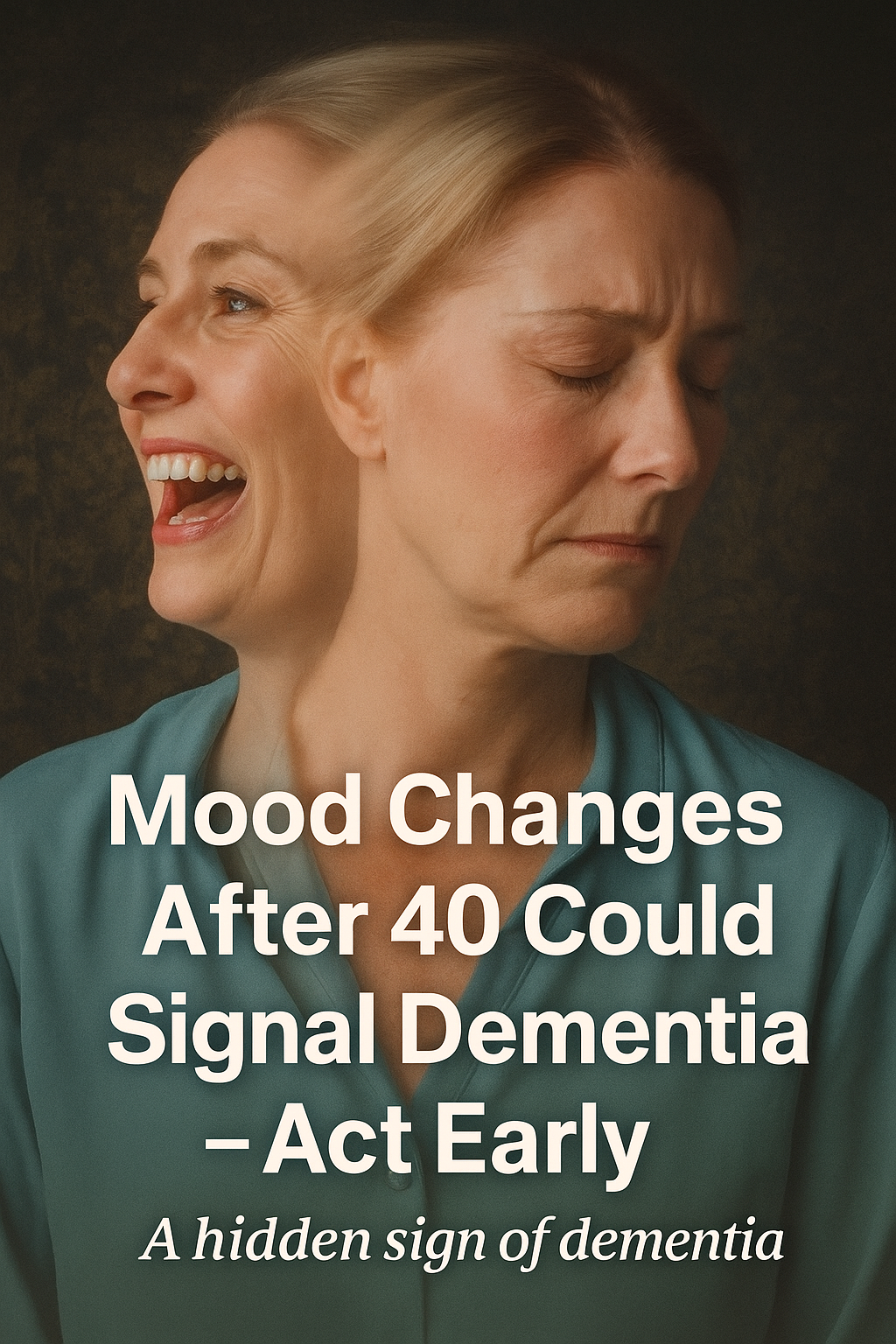
Dementia Warning: 6 Powerful Signs You Should Never Ignore After 40
The Hidden Signs of Dementia Before Diagnosis
Dementia is often seen as a condition that affects the elderly, but new research is shifting that perspective. According to a Japanese study published in Alzheimer’s & Dementia: The Journal of the Alzheimer’s Association, mood disorders such as depression and bipolar disorder developing after the age of 40 may be early indicators of dementia. This discovery places significant emphasis on early detection and mental health intervention during midlife.
In this blog, we explore why mood changes post-40 should not be dismissed as mere aging symptoms and how they could signal a deeper neurological issue. With dementia as our focus keyword, we will discuss the psychological impact, biological markers, and the urgent need for proactive care.
Mood Changes and Dementia: Uncovering the Link
Research highlights that neuropsychiatric symptoms may appear years before any noticeable cognitive decline. Individuals who experience sudden emotional disturbances—such as unexplained anxiety, irritability, apathy, or depressive episodes—may be exhibiting the brain’s early response to neurodegenerative processes.
The Japanese study pointed out two key biological components often found in patients later diagnosed with dementia: tau and amyloid protein buildup. These proteins interfere with normal brain function, leading to mood swings, memory issues, and ultimately, cognitive impairment. Recognizing these symptoms early is crucial for slowing disease progression.
The Role of Mental Health in Dementia Prevention
Mental health is often treated as separate from brain health, but they are deeply intertwined. Midlife depression, if left untreated, may significantly increase the risk of developing dementia later on. This correlation calls for a more integrated approach to psychiatric evaluation in individuals over 40.
Professionals need to be vigilant when patients in this age group present with new-onset mood disorders. Rather than treating symptoms in isolation, a comprehensive neurological and psychological evaluation can detect early signs of dementia, enabling timely action.
Why Early Diagnosis of Dementia Can Change Lives
Detecting dementia early opens the door to interventions that can delay its progression. While there is no known cure, medications, cognitive therapies, and lifestyle changes can help maintain quality of life for a longer period. The sooner the signs are recognized, the better the chances of managing the disease effectively.
Furthermore, early intervention empowers families to plan for the future. Legal, financial, and caregiving decisions become easier when the affected person is still cognitively able to contribute meaningfully.
Key Warning Signs After 40 That Should Not Be Ignored
- Sudden personality changes
- Persistent sadness or apathy
- Unexplained anger or irritability
- Withdrawal from social activities
- Difficulty concentrating or making decisions
- Changes in sleep or appetite
These symptoms may not always indicate dementia, but they warrant medical evaluation, especially if they are new developments in someone over 40.
Barriers to Early Detection of Dementia
Despite the signs, early diagnosis of dementia remains a challenge. Many individuals dismiss mood changes as normal aging or temporary stress. Social stigma, lack of awareness, and limited access to neurological screening further complicate early detection.
This highlights the need for public education and regular mental health screening as part of preventive care for adults in their 40s and beyond. Raising awareness can help normalize seeking help and reduce the fear associated with potential diagnoses.
How Families and Caregivers Can Help
Family members are often the first to notice behavioral changes. If a loved one over 40 is showing signs of mood instability or cognitive difficulties, encourage them to seek professional evaluation. Support should be empathetic, non-judgmental, and consistent.
Creating a safe environment to talk about mental health concerns helps reduce resistance and fosters timely intervention. Encourage checkups, accompany them to appointments, and help monitor their emotional well-being.
Available Support and Resources for Early Dementia Care
- Neurological Clinics: Specialized assessments for cognitive and emotional symptoms
- Therapy and Counseling: Targeted approaches to manage anxiety, depression, and stress
- Lifestyle Coaching: Exercise, sleep hygiene, nutrition, and cognitive activities
- Community Support Groups: For both patients and caregivers to share experiences and coping strategies
Conclusion: Proactivity is the Best Prevention
The idea that dementia can begin silently—disguised as mood swings or emotional turbulence—reinforces the urgent need for early screening and mental health support. Depression, anxiety, and mood disorders after 40 should be treated as potential flags rather than dismissed as age-related changes.
Timely psychological evaluation, coupled with neurological insights, offers the best chance to slow progression and maintain quality of life. Dementia is a complex condition, but early detection makes it manageable. Let’s shift the conversation from fear to proactive awareness.
It’s time to listen more closely to what our emotions are trying to tell us—they could be the brain’s earliest cry for help.

